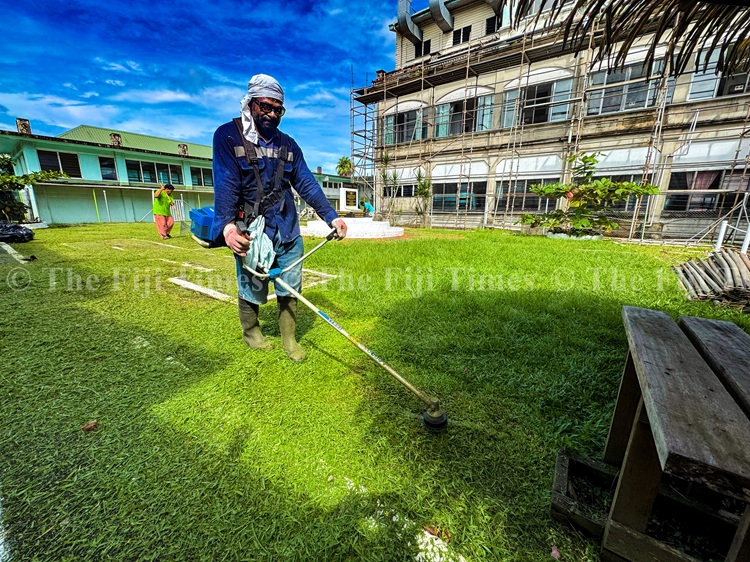The ongoing challenges faced by members of the public who visit the century-old Colonial War Memorial Hospital (CWMH) seem to be never-ending.
Despite its central role, people who visit CWMH have often voiced the challenges they face at the hospital which ranges from overcrowding and bed shortages, water supply shortage to lack of medicine.
Infrastructural limitations
Notable challenges faced by visitors to CWMH include the state of its infrastructure, poor ventilation, outdated medical equipment, insufficient lighting, and run-down wards. These are problems that stem from the aging facilities at the hospital.
Earlier this month, a video taken from inside the hospital showing patients having to wait on the aisles because of lack of beds went viral on social media. Comments on the post showed this was not the first.
A social media user claimed patients who were brought in from their respective district hospitals were often kept on the bench for hours, if not days, waiting for the beds to be free.
“Yet, if you request for a bed several times then you would be sent home because apparently they follow a so-called list,” she claimed.
Water shortages have also been attributed to infrastructural limitation and it is a serious issue, especially at a hospital.
In December last year, Health Minister Dr Atonio Lalabalavu said water disruptions were because of infrastructural issues and low water pressure.
He said bottled water were provided to patients and staff in areas affected but visitors were still advised to bring their own drinking water.
Expecting mothers and those who’ve just given birth have often voiced their frustrations on the lack of beds at the hospital. Some have had to sleep outside the maternity wards, on the aisles with their newborn baby to wait for one of the beds in the wards to be vacant.
This is despite the millions of dollars that have been allocated in the past years to the extension of the CWMH maternity wards.
Early last year, CWMH chief pediatric surgeon Dr Josese Turagava said during an interview the 500 beds at the hospital were not meeting the demand that was coming through in Fiji.
He said at that time, only three or four of the operating theatres were working and that during an operation, a portion of the ceiling in one of the theatres fell.
He had also said the sterilising machine had been in use for the past 24 years and had not been changed. Likewise for the boiler and laundry room which burnt down two years ago.
Limited medical resources and supplies
If you think sleeping on the aisle was bad enough, imagine being told that the medicine that would help cure your sickness, or numb the pain you’re experiencing was out of stock.
This is one of the other challenges that visitors face at CWMH.
There’s been some claims that patients have been asked to purchase medications from external pharmacies or stores, placing an additional financial burden on them and their families.
There’s also been some concern on the delays of treatments, especially for patients who require specialised care or urgent medical procedures.
Visitors may also find that the hospital is unable to provide certain diagnostic tests or treatments because of a lack of necessary equipment, which can lead to frustration and a sense of helplessness.
Communication barriers
Effective communication between hospital staff and visitors remains an area where CWMH struggles.
Family members of patients often report difficulties in obtaining timely updates about the condition of their loved ones.
A social media influencer once posted on her platform last month that she was still waiting for her father’s tissue sample results which was taken three months prior.
She said that upon requesting for an update, the response from the hospital was that his appointment was being moved to “next week” and when the mentioned date came, the appointment was once again moved to “next week”.
This lack of communication can often lead to heightened anxiety and confusion for visitors who may feel helpless and uninformed.
Conclusion
The above are just some of the challenges faced by visitors and patients at Fiji’s largest referral hospital.
Addressing these challenges may take time, given the lack of resources and the aging infrastructure, but once improved, it will significantly enhance hospital experience for both patients and visitors and ensure that CWMH continues to provide quality healthcare to the people of Fiji.
- In next week’s edition, we will talk to some of the patients and visitors at the hospital to highlight the difficulties and challenges they’ve faced while seeking medical assistance at CWMH.



